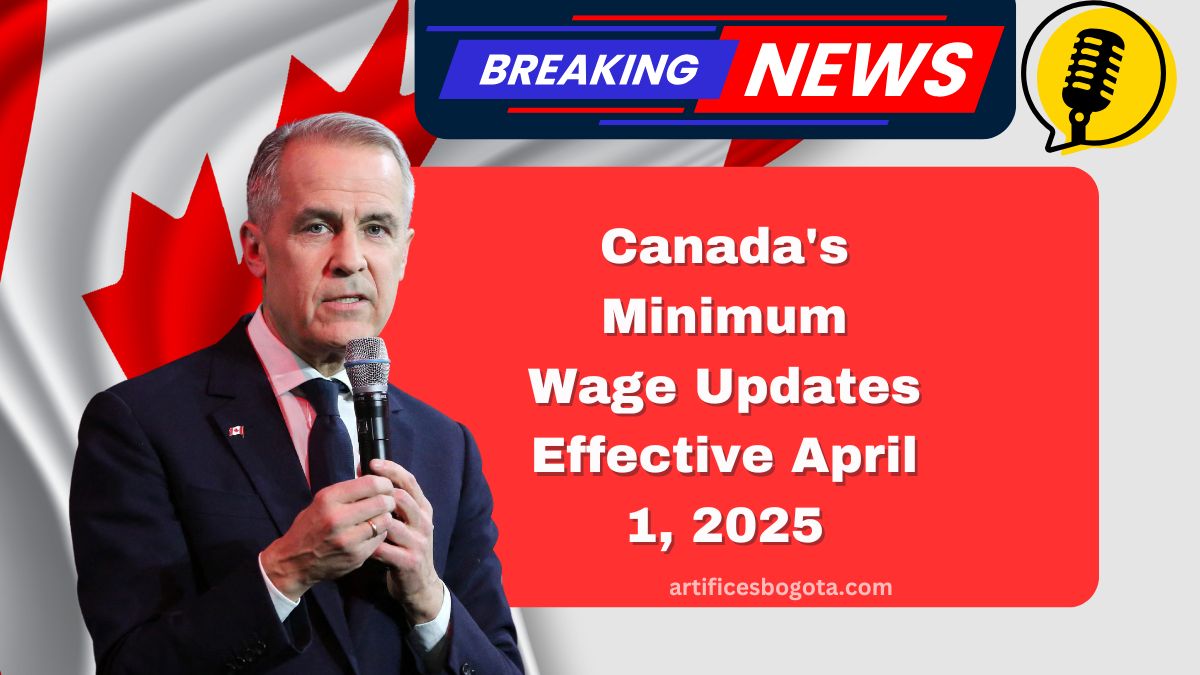Effective April 1, 2025, significant adjustments to minimum wage rates will take place across Canada, impacting both federally regulated sectors and several provinces.
These changes aim to align wages with the rising cost of living and inflation, providing workers with enhanced financial support.
Federal Minimum Wage Increase
The Government of Canada has announced an increase in the federal minimum wage from $17.30 to $17.75 per hour, reflecting a 2.4% adjustment in line with the Consumer Price Index (CPI).
This change affects employees in federally regulated private sectors, including banking, postal services, and interprovincial transportation.
It’s important to note that if a province or territory has a higher minimum wage than the federal rate, the higher rate will apply.
Provincial Minimum Wage Adjustments
In addition to the federal increase, four provinces will implement new minimum wage rates on April 1, 2025:
| Province | Previous Rate | New Rate | Increase |
|---|---|---|---|
| Nova Scotia | $15.20 | $15.70 | $0.50 |
| Newfoundland and Labrador | $15.60 | $16.00 | $0.40 |
| New Brunswick | $15.30 | $15.65 | $0.35 |
| Yukon | $17.59 | $17.94 | $0.35 |
Nova Scotia
Nova Scotia’s minimum wage will rise by 50 cents to $15.70 per hour. This increase is part of the province’s strategy to adjust wages in response to inflation, with a further increase to $16.50 scheduled for October 1, 2025.
Newfoundland and Labrador
Employees in Newfoundland and Labrador will see their minimum wage increase by 40 cents, bringing the rate to $16.00 per hour.
This adjustment aligns with the province’s commitment to regular wage reviews based on economic indicators.
New Brunswick
New Brunswick’s minimum wage will increase by 35 cents to $15.65 per hour. This change reflects the province’s efforts to ensure wages keep pace with the cost of living.
Yukon
Yukon’s minimum wage will rise by 35 cents to $17.94 per hour, maintaining its position as one of the highest in the country. The territory adjusts its minimum wage annually based on the CPI to reflect changes in the cost of living.
Implications for Workers and Employers
These wage increases are designed to help workers manage the rising costs associated with inflation.
Employers must update their payroll systems to comply with the new rates by April 1, 2025. It’s crucial for both employees and employers to be aware of these changes to ensure compliance and to understand how they may impact household incomes and business operations.
Looking Ahead
Several other provinces have scheduled minimum wage increases later in the year. For instance, British Columbia plans to raise its minimum wage to $17.85 on June 1, 2025, and Ontario is set to increase its rate to $17.70 on October 1, 2025.
Staying informed about these changes is essential for workers to ensure they receive fair compensation and for employers to maintain compliance with labor laws.
FAQs
How does the federal minimum wage increase affect employees in provinces with higher minimum wages?
Employees will receive the higher of the federal or provincial minimum wage. If a province’s minimum wage exceeds the federal rate, the provincial rate applies.
Are there additional scheduled increases for any provinces in 2025?
Yes, British Columbia plans to increase its minimum wage to $17.85 on June 1, 2025, and Ontario will raise its rate to $17.70 on October 1, 2025.
How often are minimum wage rates reviewed and adjusted in Canada?
Minimum wage rates are typically reviewed annually, with adjustments based on economic factors such as inflation and the Consumer Price Index.





Hi! Can i get more details